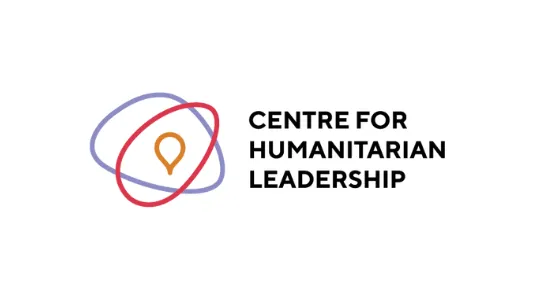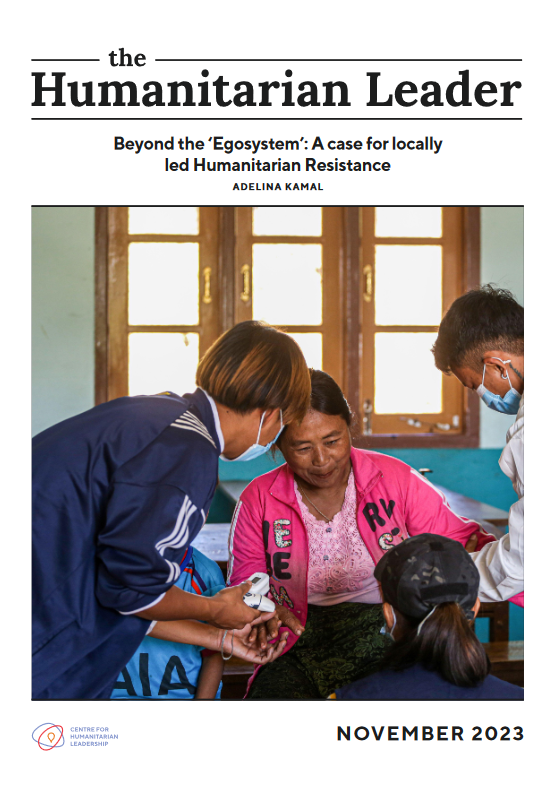Beyond the ‘Egosystem’: A case for locally led Humanitarian Resistance
22 November 2023


ABSTRACT
This article invites readers to consider a new form of humanitarianism that has emerged out of people’s resistance to military atrocities—called Resistance Humanitarianism—with a particular focus on the crisis in Myanmar. In that country, Resistance Humanitarians are challenging traditional aid actors because their operational presence and coverage can go deep inside the hardest-hit areas, which are usually inaccessible to the large INGOs and UN. This gives Resistance Humanitarians significant operational advantages, particularly the acceptance of the population, access, and data that reflects ground realities. Meanwhile, most international aid actors continue to try and gain access to affected communities through Myanmar’s oppressive and illegitimate military junta, constraining their ability to reach those most affected by crisis and potentially aiding the junta’s violent cause. The paper suggests that this vertical, top-down, ‘neutral’ approach to aid access taken by many international actors may deepen the conflict, as it pushes people away from their determination for a systematic end to injustice. The paper also argues for the urgent need to critically rethink the humanitarian approach for the Myanmar conflict, and suggests a new type of aid architecture—a locally-led, horizontally-constructed ecosystem that builds on and supports people and organisations on the ground and prioritises inclusivity, diversity and collaboration at its heart. If the aim of external international actors is to build resilience, they must rethink their approach and support military-avoiding Resistance Humanitarianism.
———————————————
In this compelling and powerful paper, Adelina Kamal urges readers to critically rethink the humanitarian approach to the conflict in Myanmar, and suggests a new type of aid architecture to enable this—a locally-led, horizontally-constructed ecosystem that supports people and organisations on the ground and prioritises inclusivity, diversity and collaboration at its heart.
Resistance Humanitarians challenge traditional aid actors because their operational presence and coverage can go deep inside the hardest-hit areas – usually inaccessible to the large INGOs and UN – and they have significant operational advantages, including the acceptance of the population, access, and data that reflects ground realities.
Kamal suggests that Resistance Humanitarians are breaking down the barriers between aid providers and recipients, removing the rigid sectorisation of human rights, humanitarianism, development and peace, and developing new norms, notably solidarity, ingenuity and adaptability. She encourages traditional humanitarian actors to rethink their approaches so that they fit better into the contexts where they operate, properly address humanitarian needs and build strong community resilience.
Announcements
28 February 2025
Asian NGO Network on National Human Rights Institutions , CSO Working Group on Independent National Human Rights Institution (Burma/Myanmar)
Open letter: Removal of the membership of the dis-accredited Myanmar National Human Rights Commission from the Southeast Asia National Human Rights Institution Forum

Progressive Voice is a participatory rights-based policy research and advocacy organization rooted in civil society, that maintains strong networks and relationships with grassroots organizations and community-based organizations throughout Myanmar. It acts as a bridge to the international community and international policymakers by amplifying voices from the ground, and advocating for a rights-based policy narrative.